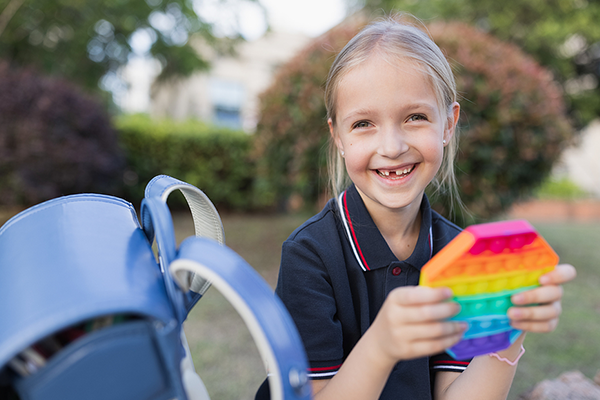In my book club, the conversation inevitably turns, at some point in the evening, to our kids and families.
The recent news of a school shooting in Florida brought a more sobering note to the discussion last month. “What would you do as a parent in that situation?” we asked one another. And even more pertinently, “What should we tell our own kids to do if that situation ever, ever were to happen at one of our own schools?”
As a parent, it’s inconceivable to have to give your child advice on how to act if a life-threatening situation unfolded at their school, church or other gathering places. But we live in a world today when even preschools are now performing active shooter drills. And with our 24/7 news cycle, our children are going to hear about news of school shootings and other violence. They’re going to wonder, question, be afraid—even if sometimes they don’t express that fear clearly.
The hardest question to answer
“Mom, what should I do?”
There’s no easy answer to that question when it comes to school violence of the kind that’s covered in the media. Do you hide? Do you try to get out? What’s the right answer when every situation could be so different?
This is new ground for any parent, but I always go back to open communication. If your child asks a question, make it OK to talk about it. If they are talking around the issue and you think it’s because they’re fearful—even if they don’t actually say they’re scared—try to gently get at what’s behind the questions. Be patient, though, and give them time to express themselves.
If your school has not already shared this, reach out to learn what the protocol is for an active shooter situation and for school safety in general. Are doors locked every day? Are security guards on staff? You can then make sure to reinforce how the school is working to make your child and everyone else safe.
Depending on the child’s age and maturity, you can also make fears more manageable and give your child a sense of control by talking through the steps and exploring what they might do in that situation. Emphasize being safe and turning to a trusted adult. Videos on social media have also been popping up discussing how a full backpack or a stack of books can offer some protection. For older kids, this might be something worth discussing.
The what ifs
Incidents like the one in Florida are also an opportunity to talk about what your child can do if he or she thinks a classmate might need help.
It’s heartbreaking to think that there could have been warning signs in any school shooting situation that were ignored. So if your child sees that a classmate is very sad or very angry—and especially if a classmate talks about hurting themselves or someone else—guide them to tell you or a teacher so that classmate can get some help. Kindness and positivity to others—especially those who are the victims of bullying—also helps.
Building a resilient child
Resiliency has become a catchword in the school setting. But the good news is, most children are naturally resilient.
Thankfully, our local schools have never been witness to a shooting at the level of Florida’s or the others that have occurred over the past several years. But there have been suicides, sexual assaults, bullying, car accidents, threats and more. While every child is different, for the most part, talking through what’s happened and really listening to your child always helps. At the same time, don’t rush it or overwhelm your child with questions as he or she might need time to process a tragedy before being able to talk about it. Your child may also express fear through play or drawing, which is a good avenue for them to release these emotions and gives you another opportunity to help talk them through it.
Also, know the signs that your child is being particularly affected by an incident. Your child’s anxiety or fear could manifest itself in headaches, stomachaches, sleeplessness and nightmares. Your child could also refuse to go to school, which may or may not be the best idea depending on the situation—say, if your child is being bullied versus your child is fearful because of news on TV.
If your child is feeling overwhelmed and you aren’t able to talk your child out of his or her fear, a visit to a psychologist or counselor might be needed.
I talk about communication a lot because it truly is the right thing to do in most cases. Especially when a tragedy happens—whether near or far—it’s so important to give your child the chance to express their fears, questions, concerns—and if it’s a tragedy that hit close to home, the chance to take an action to make it better, whether it’s writing a letter, sending a card or just taking the time to be with a friend in trouble.
In most cases, soon children will be back to their normal activities—and their normal happy, playful, curious selves. Which makes this a conversation very much worth having.





Thank you so much Tabitha!